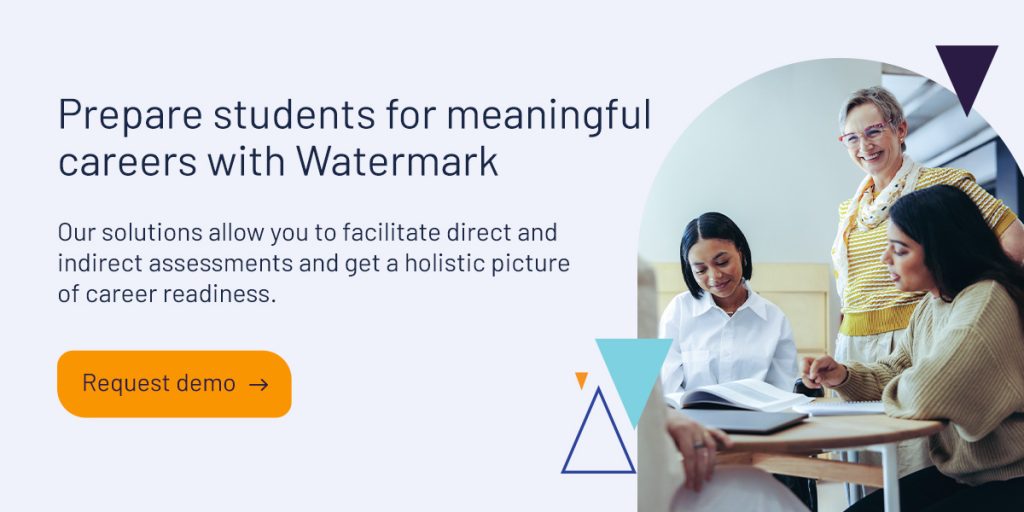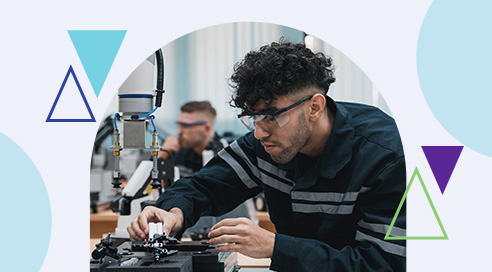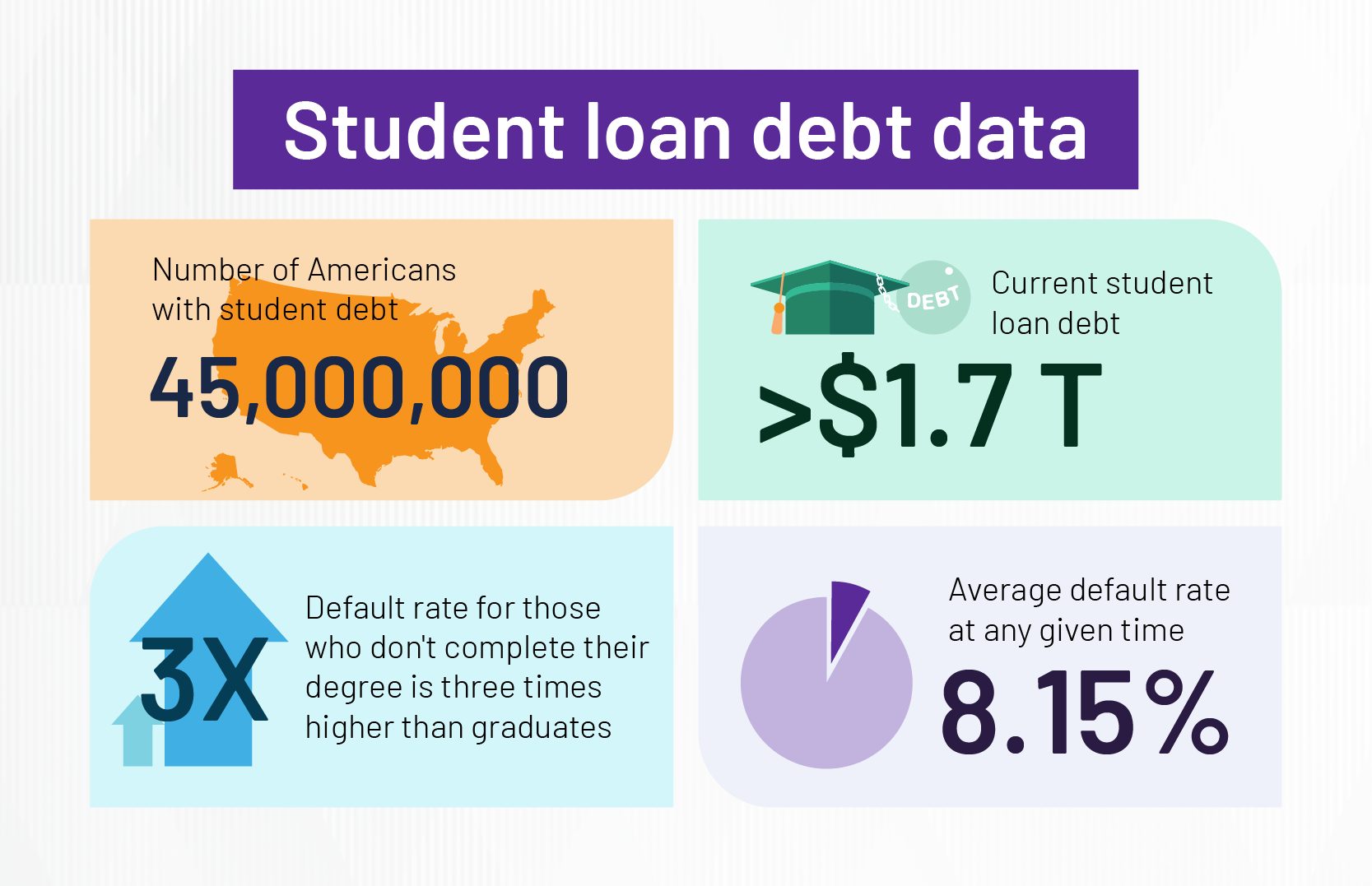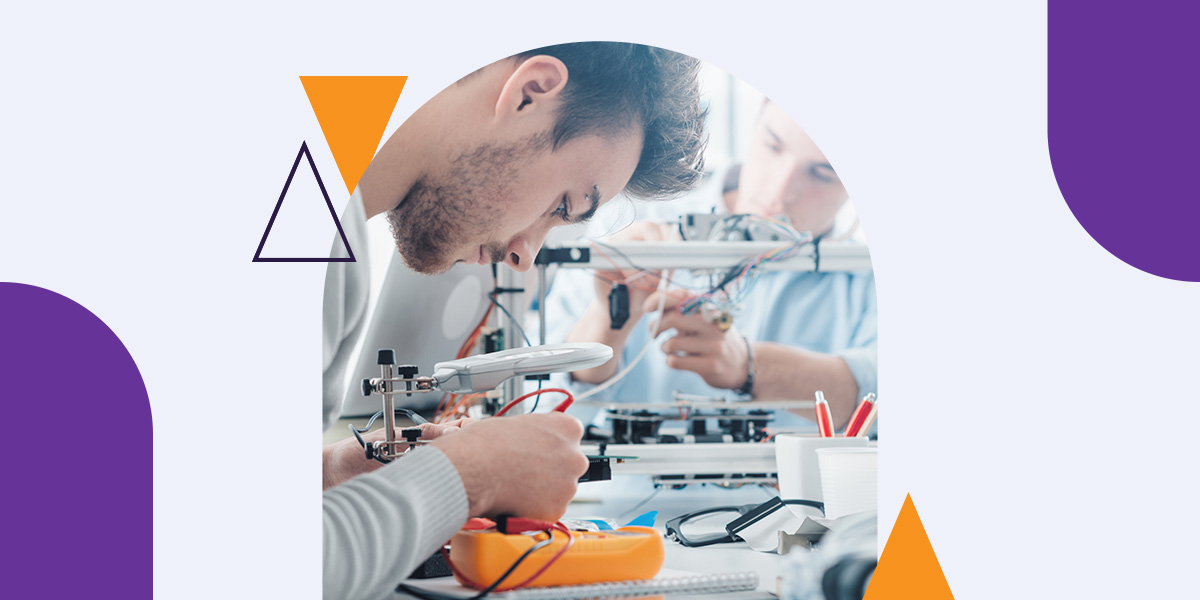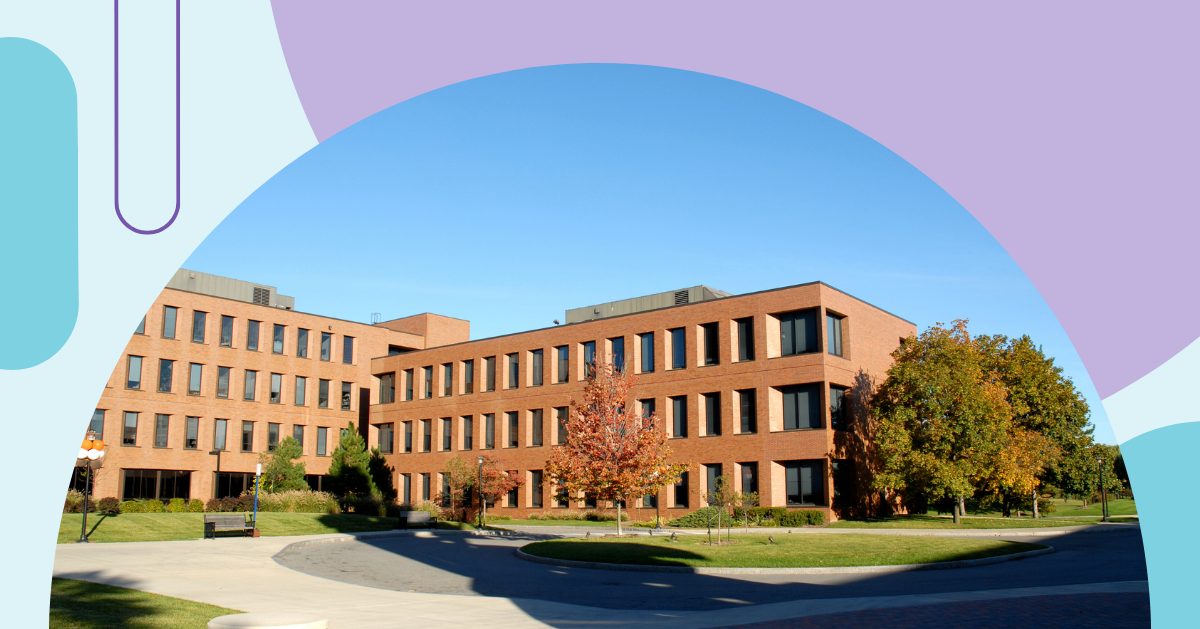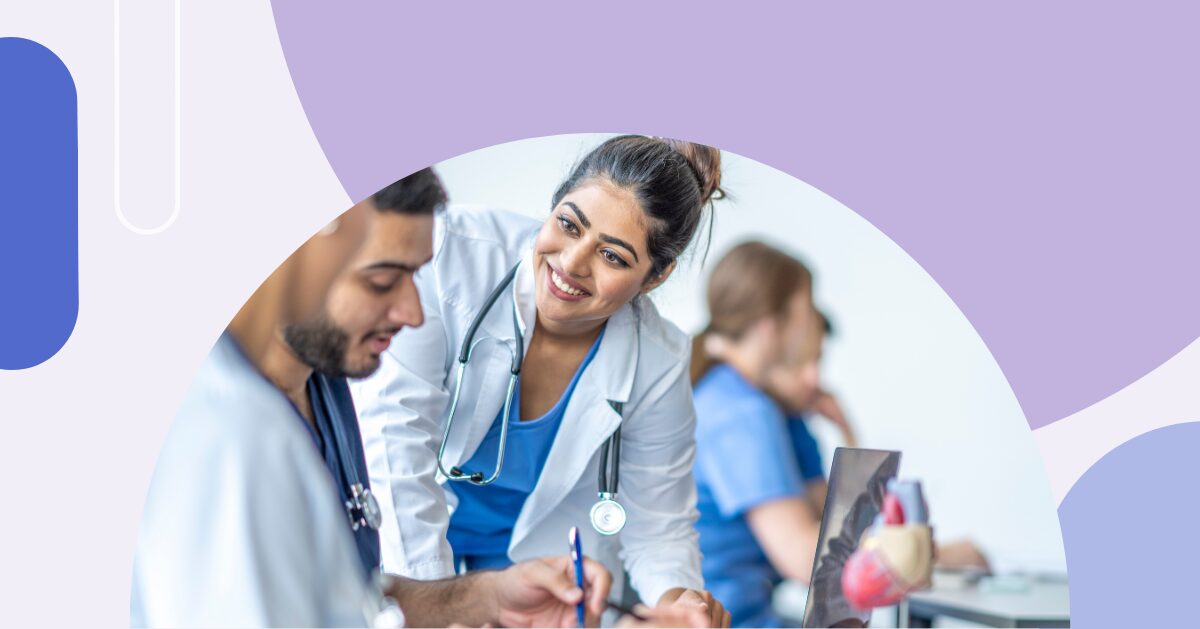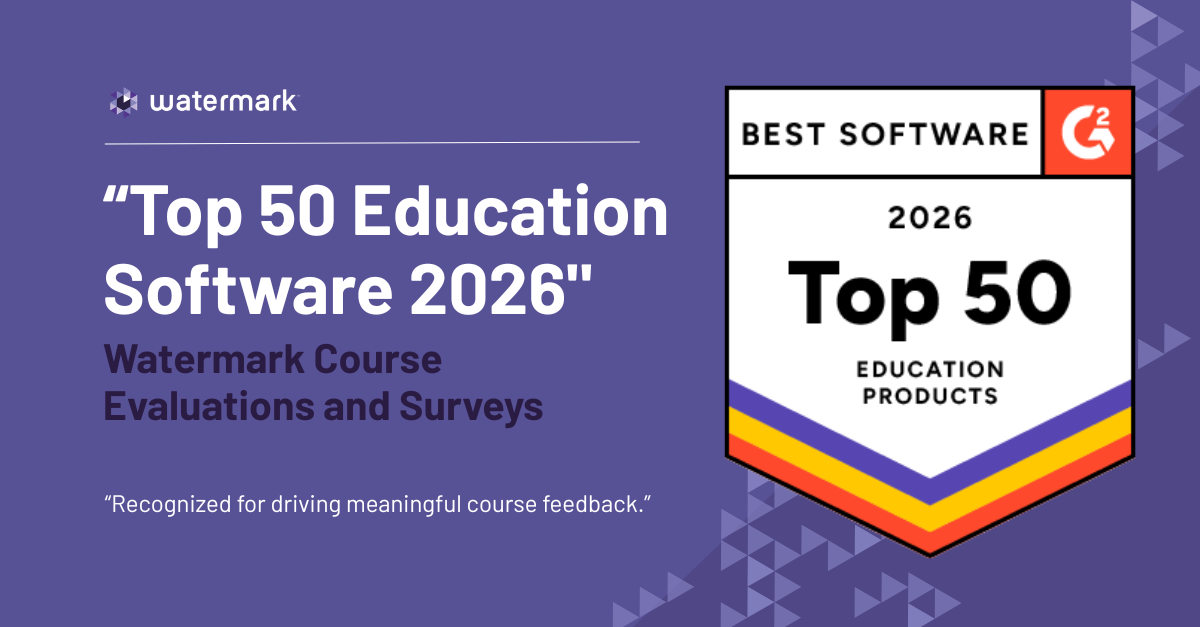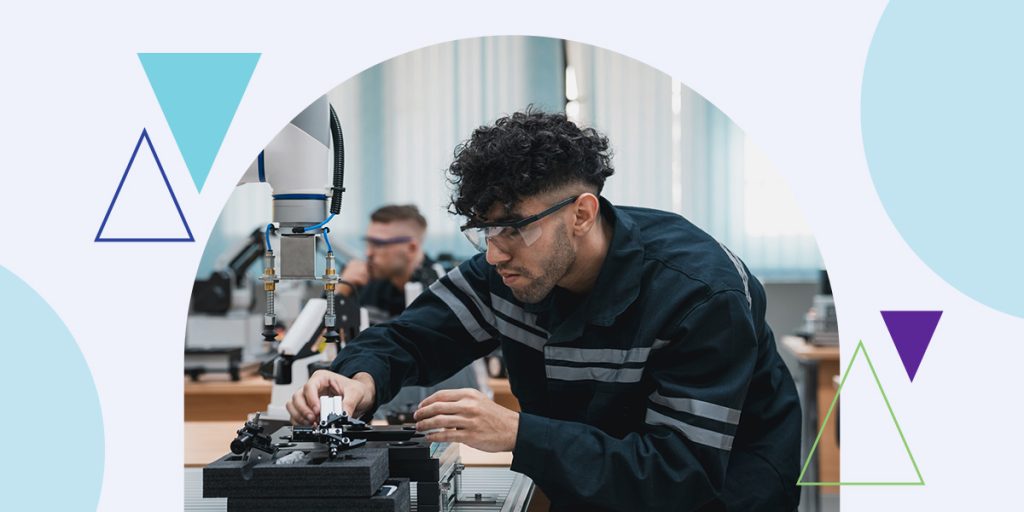
The question of how higher education institutions can better prepare students for the workforce is controversial. The workplace is changing rapidly. Employers are uncertain about the quality of graduates coming in, with 75 percent saying they find it challenging to source graduates with the necessary soft skills. Graduates themselves are feeling the pinch, with 49 percent feeling underqualified for entry-level jobs.
Career readiness skills are even more essential in technical environments, where employees must perform complex, hands-on tasks in a high-stress environment. Institutions that sharpen these skills make students more marketable and competent in the workforce. The pressing question is how they know whether they’ve accomplished that goal. As a technical school, you can assess career readiness in various ways to ensure students enter the workplace with the technical and soft skills they need to succeed.
The importance of measuring trade career readiness
Today’s students are more focused than ever on their technical education outcomes. Perceptions of higher education are changing, and only 25 percent of adults say that having a four-year degree is important for getting a well-paid job. Many choose technical and trade education to stay current in a rapidly evolving workplace.
In addition, 73 percent of employers used skills-based hiring in 2023 alone. Amid skills and talent shortages, employers match job requirements with practical application rather than education. This practice allows them to tap in to diverse backgrounds and bring new perspectives to the workplace. Of course, they need to know that applicants are prepared for the workforce. Measuring trade career readiness is essential to achieve this goal.
Career readiness in trade careers is even more crucial to ensure a skilled and agile workforce, drive economic growth, and enhance individual success. Some of the benefits of career readiness assessments in technical schools include:
- Identifying skill gaps: Measuring workforce readiness allows you to identify skill gaps so you can develop programs to address those needs.
- Adapting to industry needs: Assessing preexisting skills means better aligning technical education outcomes with current and future industry demands, preparing candidates for real-world challenges.
- Promoting professional growth: Career readiness provides personal and professional growth pathways. It empowers students to take on more challenging roles within their trade.
- Providing a baseline for continuous improvement: Your institution can use career readiness assessments to fully understand your technical programs. You can identify gaps in the curriculum and leverage data to inform continuous improvement.
Common career readiness metrics for technical schools
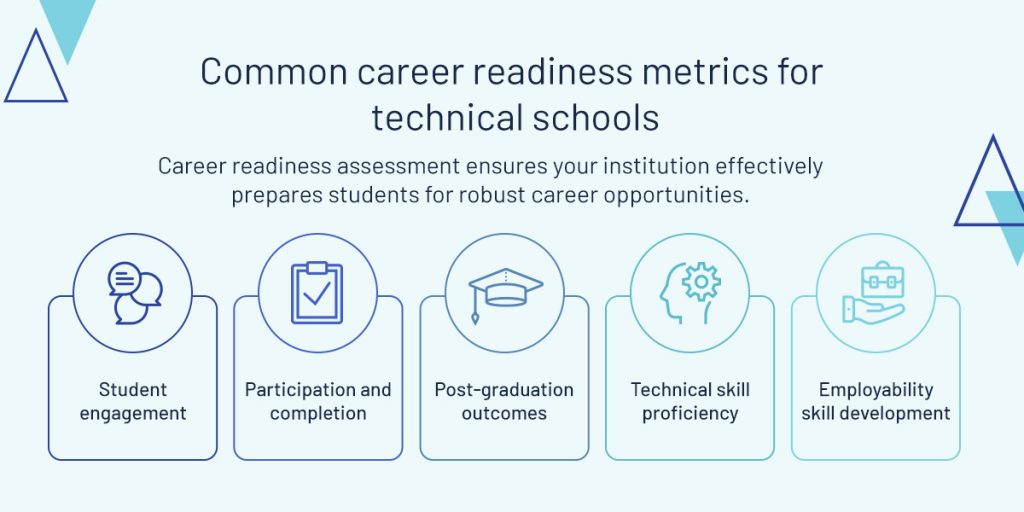
Career readiness assessment ensures your institution effectively prepares students for robust career opportunities by providing a clear measure of success. Technical schools have a unique challenge in measuring career readiness, as you need to focus on practical skills and execution as well as theoretical knowledge. Some common metrics for measuring career readiness at technical schools include:
- Student engagement: Measuring how students engage in internships, job shadowing, and similar projects assesses their exposure to real-world work environments.
- Participation and completion: You can view enrollment and completion rates in technical programs to gauge student interest and skill development.
- Post-graduation outcomes: Metrics like job placement and apprenticeships help you understand how well your programs prepare students for their next steps.
- Technical skill proficiency: You can measure the percentage of students who meet state-determined standards for technical skills.
- Employability skill development: Measuring the percentage of learners proficient in communication, teamwork, and problem-solving ensures they can do more than master technical skills.
How to measure career readiness at your institution
Career readiness is more complex than test scores and class attendance. A student ready to embark on their career is a holistic human with the right mix of soft skills and technical competency. The following tips can help you accurately assess career readiness, refine program offerings, boost student engagement, and solidify your institution’s reputation.
Provide work-based learning opportunities
Work-based learning is valuable for any higher education environment, but even more so in technical applications. In addition to helping students gain a positive work history, it helps them build networks and stand out to prospective employers. Shape high-quality work-based learning experiences to ensure students get the most from each encounter.
These experiences include internships, apprenticeships, or cooperative education programs. Students gain mileage by integrating academic knowledge with practical skills and developing crucial professional competencies. You can then ask students for feedback and speak to their workforce partners to assess competency in the field.
Focus on credentialing
Connecting technical students with credentialing opportunities is an effective way to measure their progress and engagement. Microcredentials and digital badges are excellent ways for students to build their portfolios and highlight their industry expertise. In technical fields, credentials often demonstrate practical skills essential to many employers.
Conduct career readiness assessments
Career readiness assessments provide crucial information about whether students have obtained the necessary technical skills and knowledge to move to the workplace. You can encourage students to participate in self-assessments or ask direct questions to get high-quality responses. Questions should center around decision-making, collaboration, technical proficiency, leadership capability, and problem-solving.
Although assessments help you identify each student’s basic skills, they’re best used in conjunction with other career-readiness opportunities to get the full picture.
Connect programs with occupations
The better your program outcomes align with specific occupations, the more effectively you can assess career readiness. With curriculum mapping, you can assess programs and courses and determine the relationship between learning outcomes and course content. You can discuss current industry trends with experts in the field to ensure program content remains relevant amid changing technology.
Conducting a curriculum gap analysis is invaluable for improving career readiness outcomes. It allows you to prioritize curriculum adjustments to align with changing workforce needs. You can also measure expected learning outcomes against the skills and knowledge your students demonstrate after completing a course. The results allow you to assess career readiness and refine courses to meet technical student learning outcomes better.
Introduce observational assessment of performance-based tasks
Technical employers have methods of measuring career readiness that differ from those in higher education. However, your institution can introduce those methods to gain valuable information on how your students will perform in career environments. In manufacturing, candidates must often perform real-world tasks.
You can implement observational assessments during these performance-based tasks to gauge a student’s capabilities accurately. Use simulations to test comprehension, attention to detail, collaboration, technical skills, and creativity. You can use the results to identify improvement opportunities and help students sharpen the necessary skills.
Prepare students for meaningful careers with Watermark
Effectively assessing career readiness means relying on student and institutional data. Watermark helps you gather, synthesize, and analyze student data to ensure career readiness and inform strategic improvements. With Watermark Assessment Projects, you have the data at your fingertips to measure student learning assessment at scale.
Our solutions allow you to facilitate direct and indirect assessments and get a holistic picture of career readiness. Reach out to us today to see our capabilities firsthand.
